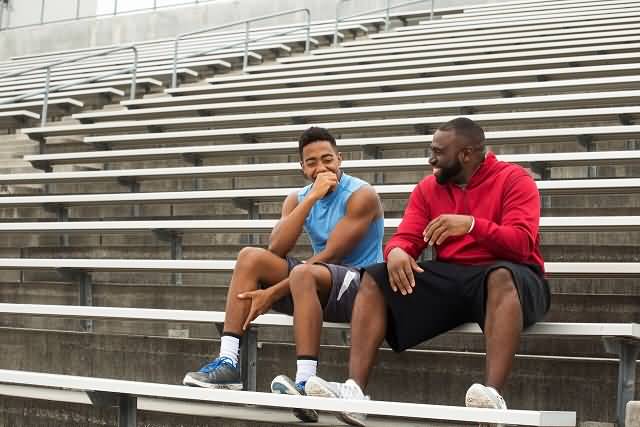The Importance of a Strong Coach-Athlete Relationship
By Dr. James Gels, From the Coach’s Clipboard Basketball Playbook"Helping coaches coach better..."
"This article is by permission from and credit to Ohio University Graduate Degree Program" - Coach Gels.
A team’s success is mostly measured by its season record and overall amount of victories, yet winning is only a minor part of success. Success alone does not make a team great until it is paired with effective coaching. Effective coaching runs deeper than wins and losses, it also includes reaching athletes on an individual level. Coaches who focus on positive, personal relationships with their athletes are ensuring success beyond their record on the field.

Positive Relationship Skills
Coaches who value and focus on effective, personal relationships with their athletes are guaranteed benefits regardless of wins and scores because they will have helped to influence positive moral and ethical behaviors. Through strong relationships and a holistic approach to coaching, young athletes will develop as people and play better as a team.The skills an effective coach possesses revolve around honesty and positivity. Coaches who genuinely want to connect with their athletes need to be empathetic and understanding. They must accept, support and respect their athletes as well as the people around them. They must realize that being a role model is a 24/7 job. Approachable and interested coaches will attract players, both those interested in a relationship and those who don’t know if they want one.
If coaches are willing to create a relationship but are unsure how to begin, they can try a few simple methods. They can host events outside of the athletic program, like a meal or fun activity during the weekend. It gives the athletes an opportunity to connect with their coach outside the usual relationship structure.
Another method is being available as a tutor or advisor. Before or after school, coaches can hold office hours that figuratively and literally promote an open door policy. Sometimes athletes won’t respond and sometimes they will. It is really about going more than halfway and giving athletes every chance to build a possible relationship.
Negative Relationship Characteristics
The coach-athlete relationship is considered particularly crucial because of its effect on the athlete. Young athletes are susceptible to the effects of their surrounding environment and to the ideas of others, making the coach-athlete relationship critical to the development of athletes as professionals as well as sports participants. If a coach is obsessed with victory and their sole goal is winning, they may be able to reach that goal. However, it comes with the strong possibility of introducing ethical and professional dilemmas.Success without effective relationships produces athletes with ability, but with no personal growth. Coaches must understand their job isn’t just about physical progress, it’s about setting their young athletes up for success in life. A lack of interest, remoteness, deceit and pessimism are key characteristics to avoid as a coach. Apathy and irritability set a poor example to be followed and lead to ineffective relationships.
These characteristics do not provide a healthy foundation for positive relationships, and exploit malleable minds in pursuit of victories on the field, when the real victories are found in teamwork and personal connections.
Effective and Successful Coach-Team Relationships
When an individual is strengthened, the team is strengthened. Genuine relationships between athletes and coaches generate more trust, better communication and a winning attitude. An open line of communication helps everyone be more honest with one another, which leads to stronger training, athletic progress and personal growth. Winning will become a byproduct of relationships the team and coach/coaches have created with one another.Victories, success, winning or goals measured through numbers are attainable without relationships, but that has its drawbacks. Coaches become remote and distant, and players adopt a “win at any cost” attitude, characterized selfishness and poor sportsmanship. By promoting a positive competitive environment, athletes can have the opportunity for unlimited personal growth both on and off the field.